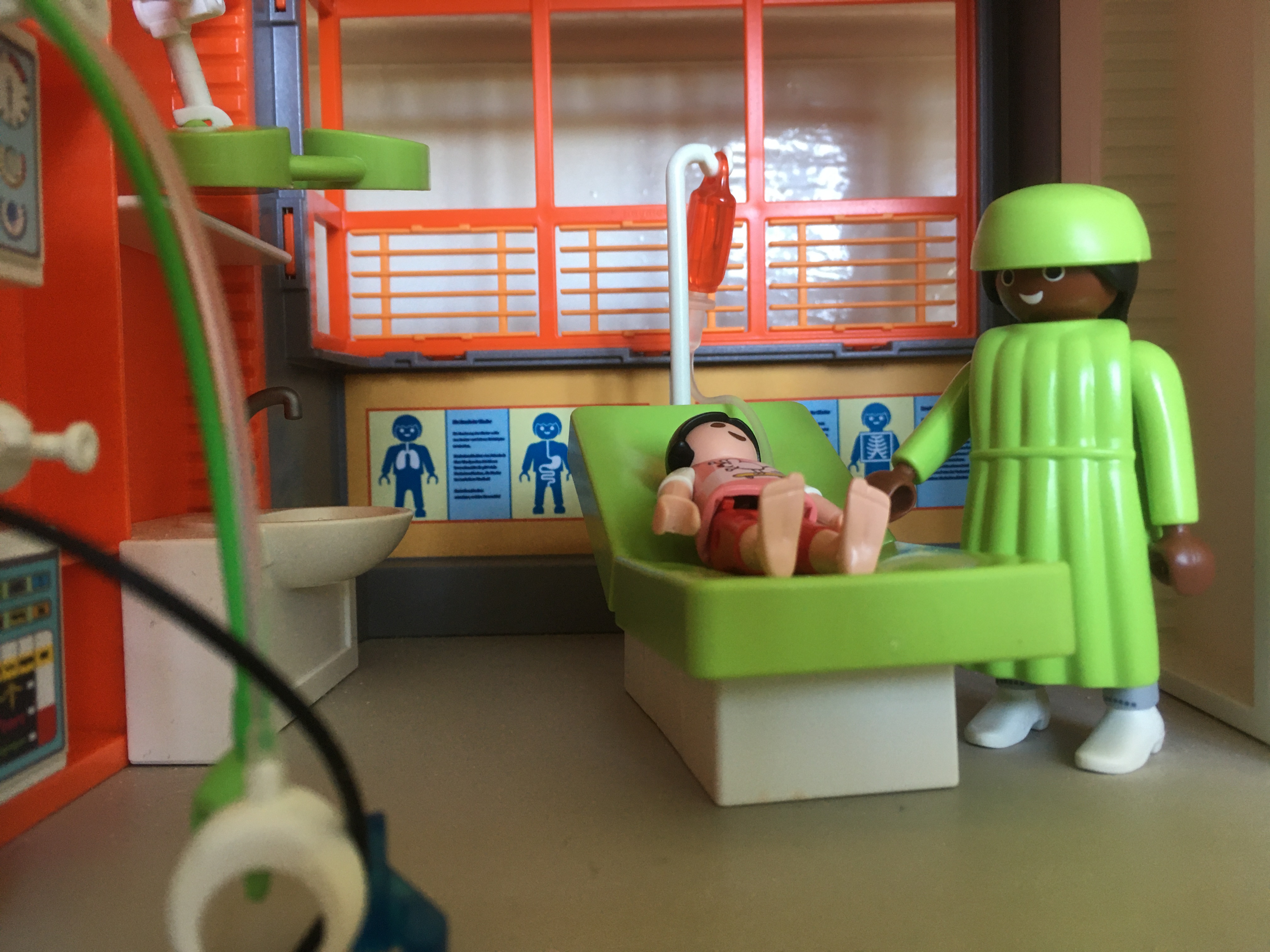 Young children are not sufficiently developed to express themselves fully through speech, they communicate most effectively through play (where they can act out their experiences and feelings).
Young children are not sufficiently developed to express themselves fully through speech, they communicate most effectively through play (where they can act out their experiences and feelings).
Play Therapy is a specialized form of Humanistic counselling designed for children, where the toys act as the child’s words and the child does not feel threatened or interrogated. In Play Therapy, children receive emotional support from their Play Therapist to better understand their thoughts and feelings. Sometimes children may re-enact or play out past difficult life experiences in order to try and make sense of them: this enables them to develop a sense of ‘mastery’ and can be very empowering.
When working with an individual child, Amanda primarily offers Child-Centred Play Therapy but also works in a more integrative manner when she feels that this would benefit your child (e.g., in addressing a negative misconception, supporting the child developing relaxation strategies, where direct safety work is advisable), or when offering a shorter-term therapeutic support package.
Who can benefit from Play Therapy?
There are certain challenges that every child is likely to face at some time in their early lives (e.g. moving house, the death of a pet or changes in their family structure) and, sadly, some children have to face very difficult starts in life (e.g. health worries, developmental difficulties, neglect and abuse). Every child is unique and responds differently to the challenges they face, sometimes difficulties responding to life challenges mare result in your child experiencing negative feelings (e.g. anxiety or depression) or a change in their behaviour (e.g. becoming disruptive or inattentive). Parents or carers might report concerns about changes in their child’s eating habits, sleeping patterns (particularly nightmares), friendship problems or difficulties at school. Please feel free to contact Amanda for a free, no obligation conversation about whether Play Therapy might be the right support for your child.
The outcome of Play Therapy might be general (e.g. your child may appear happier and demonstrate raised self-esteem) or more specific (e.g. more positive behaviour or improvements in relationships).The positive changes that you would like to see for your child would be discussed fully with Amanda at the start of any Play Therapy intervention. Your child’s therapeutic progress would also be reviewed regularly with Amanda.
When Play Therapy might not be appropriate.
There are some situations when Play Therapy would not be appropriate, and Amanda would always be happy to offer a free and no-obligation discussion around your child’s particular needs or family situation to help you find the right support. Times when Play Therapy might not be recommended include:
- If your child was about to experience a significant change in their lives, e.g., move house or school.
- If parents or carers were unable able to respond sensitively to their child’s ‘challenging’ behaviours (e.g., as a result of the birth of a new baby, a bereavement, divorce, personal mental health difficulties, etc.)
- Very occasionally, developmental delay, certain medical conditions or a history of abuse might mean that Play Therapy would not be appropriate for your child at that time: Amanda would always be happy to offer a free, no obligation discussion around the suitability of Play Therapy for your child and, if this form of therapy were not appropriate, would direct you to other areas of support.
What are the stages of a Play Therapy support package?
- Initial Contact. This will usually involve a free, no obligation phone call conversation to discuss your child’s difficulties and explore whether Play Therapy would be a suitable intervention.
- Referral Form. This will need to be completed and consent obtained from all people who have parental responsibility for your child.
- Assessment. This usually involves having a meeting with you so Amanda can get a more informed picture of the difficulties your child is currently experiencing and what positive changes you might like to see. At this stage, Amanda would be likely to talk to other professionals supporting your child’s development: this might include their Class Teacher, Social Worker or relevant Health Professionals.
- Home or Playroom Visit. It is at this stage that Amanda would want to introduce herself to your child in a way that feels most comfortable for you as a family. It may be that you and your child come to meet her and have a look at the playroom or, if a child is particularly anxious, she might recommend coming to your home. This meeting enables Amanda to assess your child’s development; their ability to play and discuss with your child how they feel about having Play Therapy.
- Suggested Therapeutic Package Discussion. If you are happy with Amanda’s recommendations, then sessions can be scheduled!
- Play Therapy Sessions and Review Meetings. Play Therapy sessions are usually held in a specially designed playroom in Amanda’s house: where required, Amanda can facilitate sessions elsewhere, but she would make and additional charge for travel expenses and time. Therapy sessions are usually 50 minutes long but may be reduced depending on the developmental needs of the child. Consistency is really important, to help your child develop a sense of therapeutic safety. Appointments would be offered weekly and held at the same time where practicable. The number of sessions a child will need does vary and this is best discussed on an individual basis: most children require somewhere between 18 – 24 sessions of Play Therapy. There will be regular review meetings with you and possibly school staff, if appropriate, to keep you up to date with how your child is progressing and share ideas of supporting your child outside the playroom: review meetings would usually be offered every 6 weeks.
- Preparation for Ending. Positive, planned, therapeutic endings are really important for your child’s sense of self-worth: this would be discussed in the penultimate review meeting.
